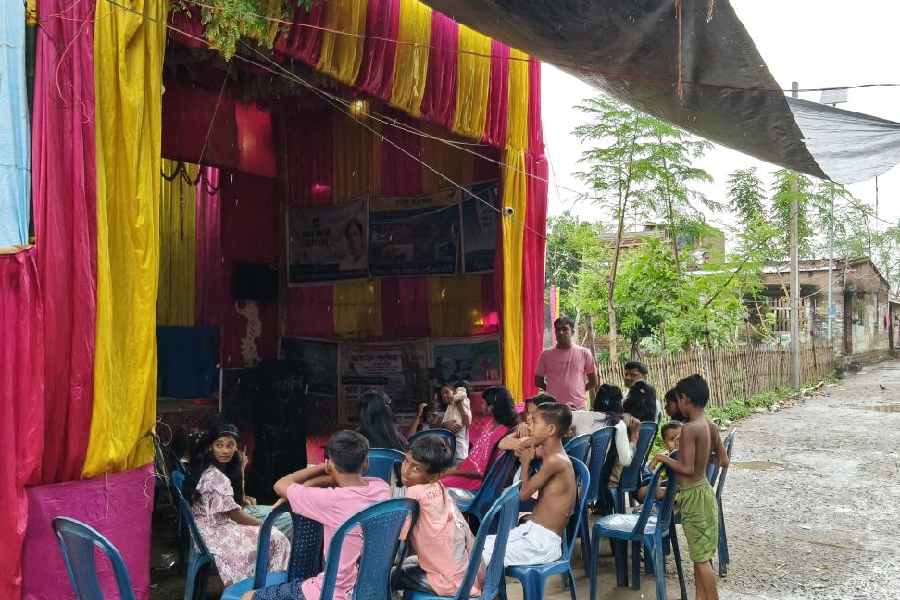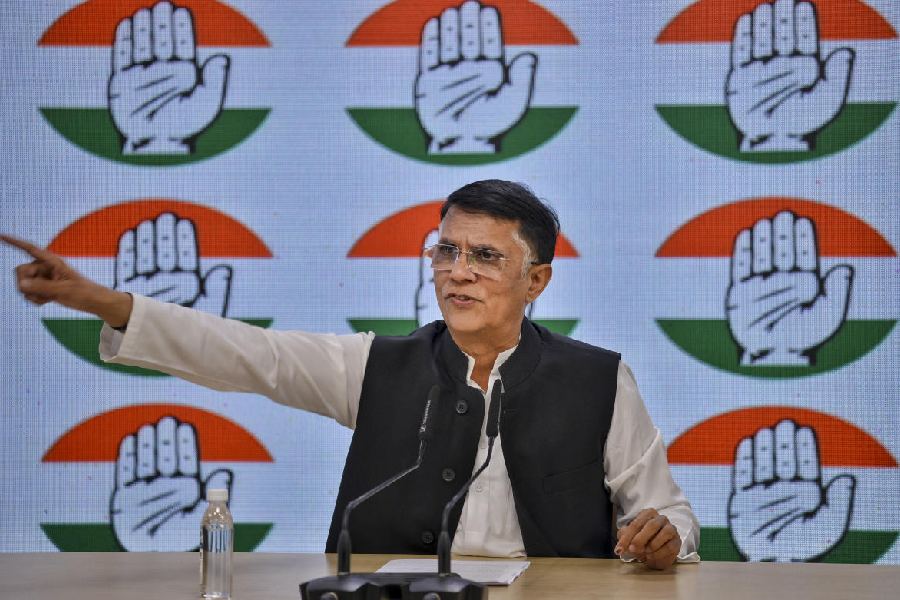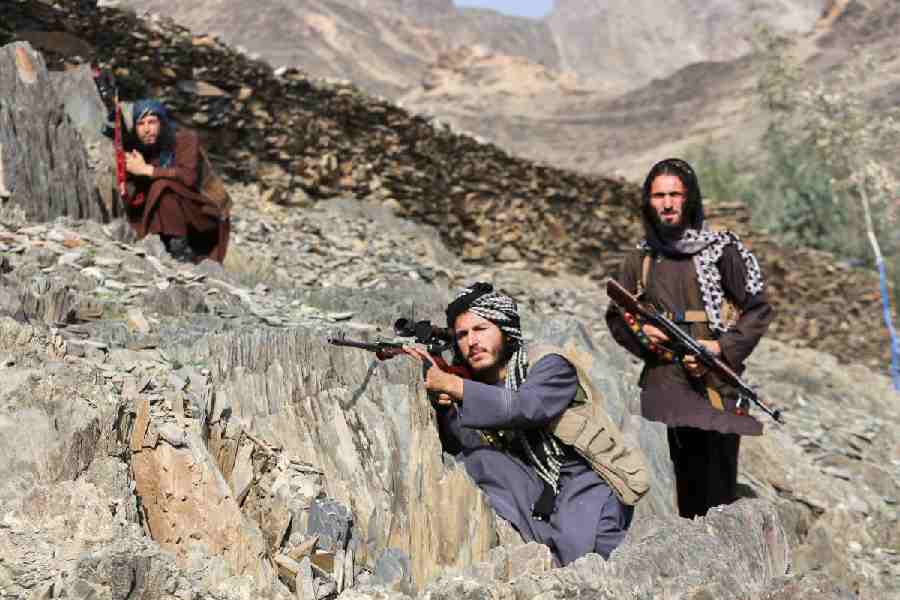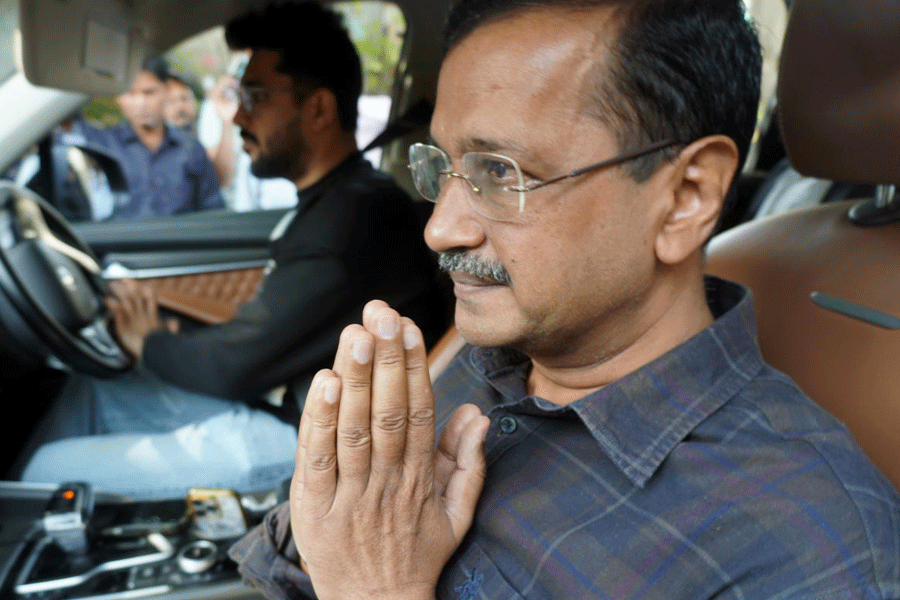For the first time in their lives, families of Sukumar Ghosh and Lalan Ghosh were forced to spend Durga Puja outside their ancestral homes.
Sukumar Ghosh of Radhakrishnapur village in Lalgola took shelter with 12 family members at Sekalipur High School.
Lalan Ghosh, too, a resident of nearby Sekalipur, sought refuge in a school building. The devastating erosion of the Padma river has not only swallowed their homes but also robbed them of the joy of festivities this year.
They are not alone. Across the erosion-prone belts of Murshidabad district, families have been displaced, with Durga Puja bringing no joy but only anxiety about a future that seems increasingly uncertain. Just 20 days ago, the Padma washed away a large portion of Radhakrishnapur.
Ten houses collapsed into the river, forcing residents to abandon their homes and take shelter in local schools. With their lives uprooted, they found themselves in no position — physically or emotionally — to celebrate the festival that once united their community.
“Even though I wanted to go to the puja pandal on Ashtami, I couldn’t. My eyes were filled with tears as I sat in the school. Many families have already left the village out of fear of losing their homes. The erosion has gripped all of us with terror,” said Sukumar Ghosh, his voice breaking.
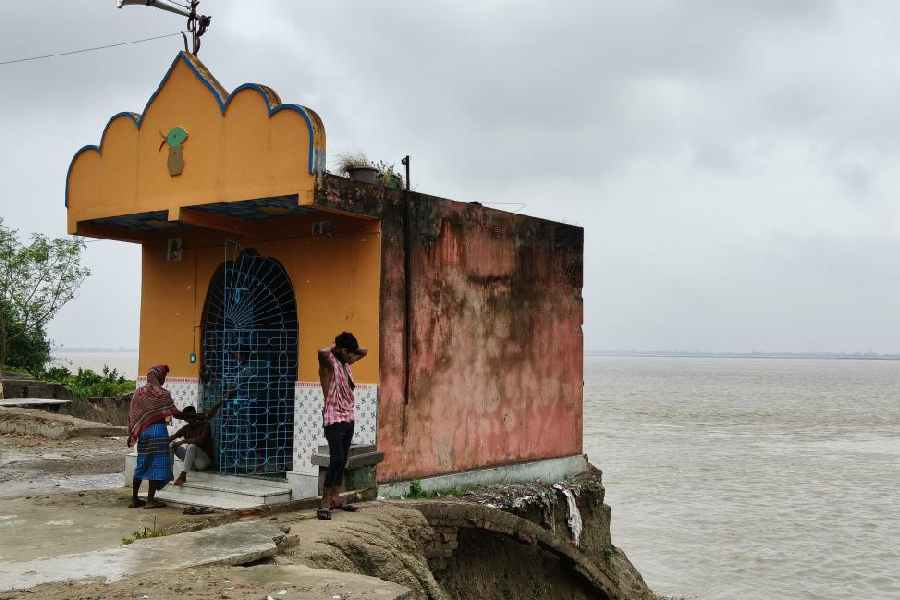
A temple on the eroded bank of the river at Chachand near Samserganj
This fear is visible everywhere in Radhakrishnapur, where almost half the population has already fled. The Durga Puja was organised this year by a handful of residents, not as a joyous celebration but as a customary ritual, carried out amid the looming threat of the river devouring the remaining houses.
“The Padma has been making waves with a loud sound, which means erosion has begun again. In such a situation, how can we pray before the Goddess and enjoy?” asked Shyamal Ghosh, secretary of the Radhakrishnapur Durga Puja Committee.
He added: “We organised the puja only because it had to be done. It is our tradition, but this year was different. Almost half the villagers are outside. Arranging the puja was nearly impossible, but we managed because the state government gave us ₹1.10 lakh. Without that aid, we could not have kept the tradition alive.”
Unlike other years, when the festival lasted four days with cultural programmes, community feasts, and new clothes distributed among the poor, this year the celebrations were stripped to thebare minimum.
“In earlier years, we had a budget of around ₹2 lakh, but this time we could only finish the rituals within the limited government support,”said Shyamal.
The pain of displacement was reflected in every word of those who lost everything. “I have lost everything and could not even think of a celebration for the first time in my life,” said Sukumar Ghosh, sitting in his temporary shelter at Sekalipur High School.
“There were five rooms in my house. Everything was there — kitchen, toilet, bathroom. But all of it has been taken by the river. Only a part of the wall remains visible. Every year, we worshipped and enjoyed Durga Puja. But this year, after losing everything, I could only cry.”
The plight is the same in Chachanda village under Samserganj police station, where at least seven families became homeless barely one-and-a-half months ago. Some of them took shelter in Jabadipur Primary School, others in Basudebpur High School. There too, the century-old Durga Puja was performed in a skeletal form, merely to keep tradition alive.
Biswajit Sinha, a resident of Chachanda who lost his home, said: “I went to the puja pandal for an hour, but I could not stay. I felt dejected and returned to the shelter in the primary school.”
Even the puja committee president, Arijit Burman, was not spared. His home was washed away and his family now lives in an ICDS centre.
With tears in his eyes, he said: “Our puja is 100 years old. We cannot imagine breaking this tradition. That is why we performed it, even though many of us are now homeless. Without government aid, it would not have been possible. We took no donations from villagers. Even our Kali temple has been swallowed by the river. We live in constant fear that the rest of the village will sink any day. How can we celebrate Puja in such a situation?”
The tragedy unfolding in Murshidabad is not just about houses lost but about lives uprooted, memories shattered, and traditions stripped of joy. The Padma relentless in its advance, has reduced proud farmers and householders to refugees in schools and shelters. The rhythmic sound of drums and chants of Durga Puja that once echoed through these villages now mingle with the fearful roar of the river, leaving behind a stark reminder of how fragile life is along its banks.
“For us, Durga Puja this year was not a festival of victory over evil — it was a desperate struggle to preserve dignity, heritage, and faith in the face of a river that continues to devour both land and hope”, said Arijit Burman.

